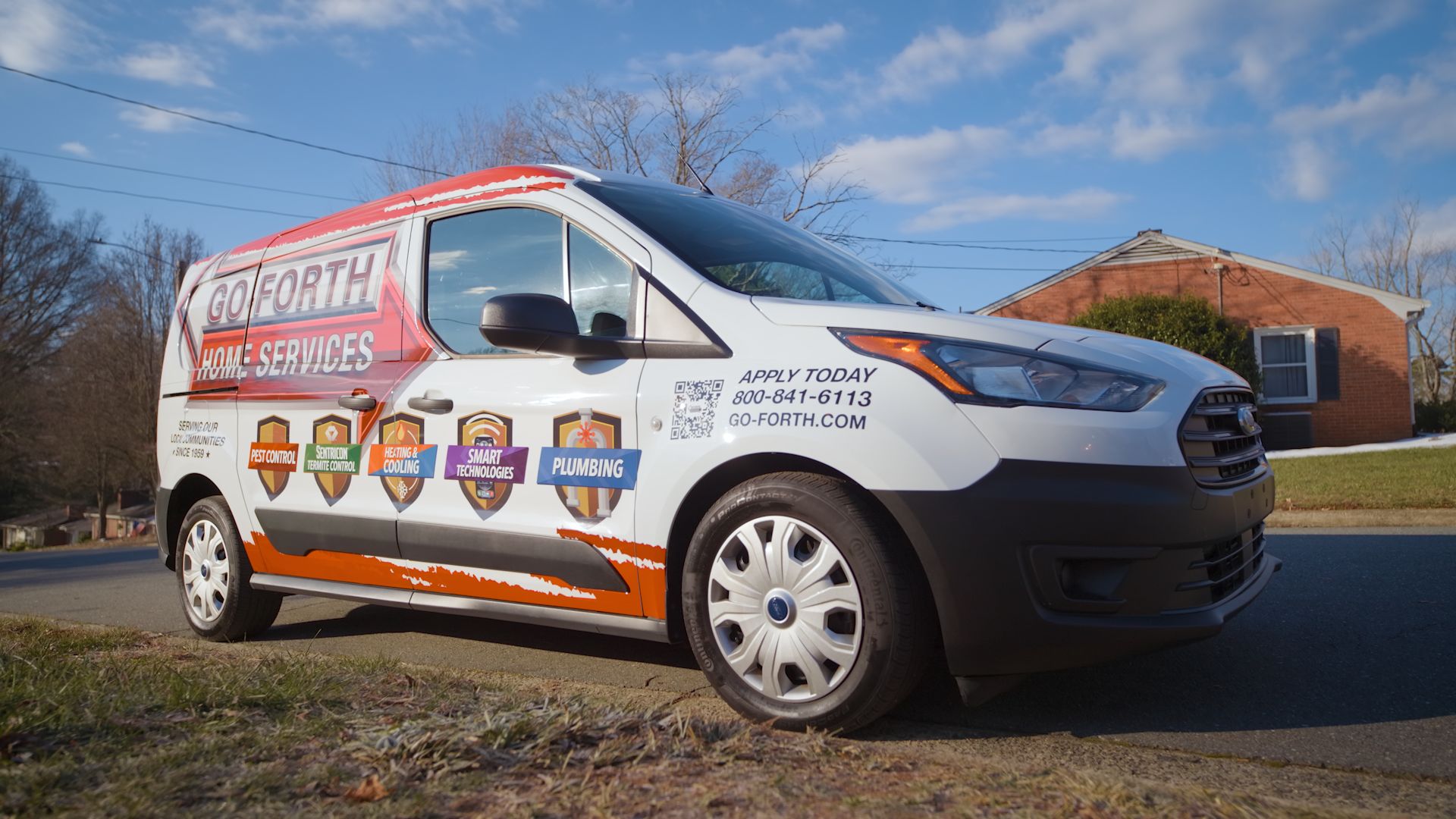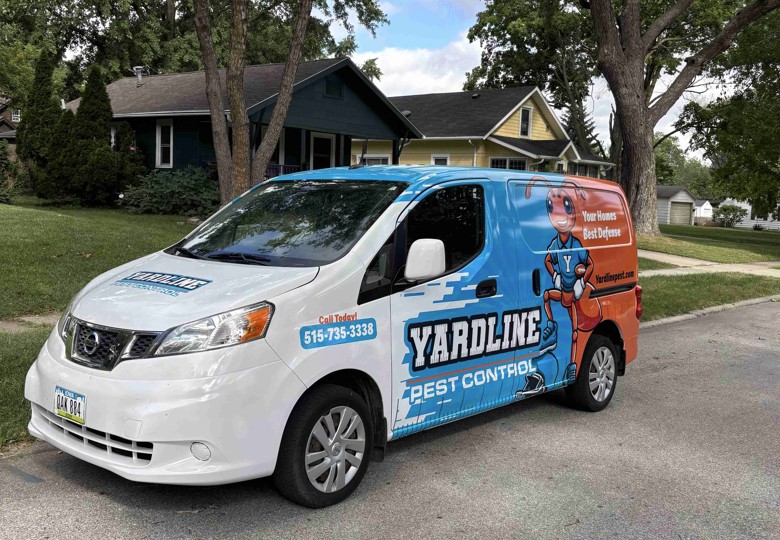Pest Control Route Supervisor: Job Description & Insights

A Pest Control Route Supervisor plays a vital role in service-based pest control businesses by managing technicians, optimizing daily routes, and ensuring consistent customer satisfaction.
This role directly affects operational efficiency, service delivery, and company revenue.
This guide explains the role to job seekers and clarifies for business owners and operations managers how this position supports growth and smooth operations.
What Are the Primary Responsibilities of a Pest Control Route Supervisor?
A Pest Control Route Supervisor ensures that daily field operations run smoothly. They act as the connection point between field technicians, office staff, and leadership.
Their responsibilities directly influence customer satisfaction, technician productivity, and service quality. They also play a crucial role in providing inspection services to both commercial and residential clients.
From managing schedules to resolving service issues, the route supervisor controls every moving part. With the growing demand for responsive, high-quality pest solutions, this role is essential for maintaining performance across residential and commercial routes.
Route supervisors typically start their day by reviewing technician availability and customer requests. They then assign appointments and adjust for any unscheduled stops. Throughout the day, they stay in contact with field teams, respond to client concerns, and ensure jobs are completed on time and to standard.
At day’s end, they report updates on service requests to managers and log essential service data.
These professionals must be highly organised, customer-focused, and comfortable making fast decisions in a dynamic work environment. Their work supports retention, improves customer communication, and drives operational consistency.
Here are the most common responsibilities:
Assign and adjust technician schedules daily
Optimise routes to reduce fuel use and improve response time
Monitor technician performance and job completion
Resolve field issues and respond to customer concerns
Ensure all work complies with safety and company standards, including the use of safety equipment
Ensure all work complies with safety and company standards, adhering to OSHA and state requirements
Provide performance feedback and on-the-job coaching
Report to operations leaders with updates and service insights
For more on how route supervisors improve productivity, read our guide on technician efficiency.
What Qualifications Are Required to Become a Pest Control Route Supervisor?
Most employers look for a mix of education, industry knowledge, and supervisory experience when hiring a Pest Control Route Supervisor. This role requires a firm grasp of pest management, the ability to lead field staff, and an understanding of scheduling and service delivery.
While formal education beyond high school isn’t always required, applicants with leadership experience and a background in logistics, route coordination, or any pest management program are often preferred.
Here’s what most hiring managers expect:
High school diploma or equivalent: A high school diploma or GED is required. Some companies may favor candidates with an associate’s or bachelor’s degree in business, logistics, or a related field.
Work experience in pest control: At least 2–5 years in a pest control technician or related service role is typically expected.
Supervisory or route management experience: Prior full-time experience managing teams or coordinating routes gives applicants a strong advantage.
Strong driving record: A clean driving record and valid driver’s license are essential, especially when operating a company vehicle.
Knowledge of pest control operations: Understanding pest control procedures, service expectations, and pesticide application regulations is critical. Candidates must also pass various state-mandated exams to qualify for the position.
Comfort with digital tools: Route supervisors often use software like FieldRoutes to schedule jobs, track progress, and update reports in real time.
Having the right mix of qualifications ensures that a route supervisor can manage operations efficiently while maintaining high safety and service standards.
What Skills Are Essential for a Pest Control Route Supervisor?
A successful Pest Control Route Supervisor needs more than industry knowledge—they must balance customer satisfaction, technician performance, and daily scheduling.
This role requires a combination of technical skills, interpersonal strengths, and leadership capabilities. Effective supervisors are distinguished by their ability to think clearly under pressure and manage multiple moving parts. Attention to detail is also crucial for effectively managing tasks and responsibilities.
Route supervisors are often the first point of contact for technician issues or customer complaints. They must solve problems quickly and ensure every route runs smoothly.
Here are the most important skills for this role:
Strong communication and customer service skills: Listen actively, resolve issues quickly, and clearly explain service updates to clients and team members.
Time management and organization: Prioritize appointments, balance workloads, and respond to last-minute changes efficiently.
Familiarity with routing or field service technology: Use tools like FieldRoutes pest control software to track technician locations, automate schedules, and streamline reporting.
Team leadership and conflict resolution: Motivate field teams, address concerns respectfully, and create a collaborative work culture.
Analytical thinking and route planning. Analyze data to improve route efficiency, reduce fuel costs, and support long-term productivity.
These skills help supervisors stay in control of field operations and deliver consistently high-quality pest control services that meet customer expectations.
What Licenses or Certifications Are Needed for This Role?
Licensing requirements for a Pest Control Route Supervisor vary by state, but most similar jobs require a combination of technical credentials, background checks, and safety compliance.
Whether managing teams or handling pesticide application directly, route supervisors must meet legal standards and demonstrate professional competence.
Here’s what most employers expect:
State-issued pest control applicator or operator license: Required if the supervisor applies treatments or oversees licensed work. Applicants must pass various screening requirements to obtain this license.
Valid driver’s license: Route schedule supervisors often travel between sites and must maintain a clean driving record to operate a company vehicle.
OSHA compliance training: Understanding safety regulations and handling hazardous materials is often required or preferred.
Optional certifications in leadership or logistics: Credentials in route planning, team management, or operations can help supervisors stand out. A disclaimer: these certifications do not guarantee employment, but can enhance your qualifications.
Keeping all licenses and certifications current ensures supervisors comply with federal regulations and operate safely across all job sites.
What Is the Average Salary for a Pest Control Route Supervisor?
A Pest Control Route Supervisor's salary varies depending on experience, region, and company size.
Supervisors with more years in pest control operations or those working in high-demand markets may earn significantly more than the national average.
Bonuses and performance incentives are also standard, especially in roles directly impacting customer satisfaction and route efficiency.
According to ZipRecruiter, the average hourly pay for a pest control route manager in the U.S. is $12.02. However, pay rates can differ significantly by region and employer.
In California, the average hourly rate rises to $20.38.
In Jonesboro, AR, route managers earn an average of $20.61 per hour.
Bonuses, commissions, paid time off, health insurance, dental insurance, or performance incentives are standard, especially in companies that tie compensation to service quality, technician efficiency, or route profitability. Some may even offer life insurance as part of the package if job duties are somewhat hazardous and protective equipment is required.
These variables make the role lucrative for those who manage teams well and optimise daily operations.
Most commercial pest control employers also offer bonuses, flexible schedules, or commission structures tied to performance, technician productivity, and route profitability, making this role financially rewarding for high performers.
What Is the Career Growth Potential for a Pest Control Route Supervisor?
The career path for a Pest Control Route Supervisor is full of opportunity.
With strong interpersonal skills, problem-solving ability, and experience in pest control operations, supervisors can advance into higher leadership and specialist roles. This role is a springboard into positions that shape broader company strategy and regional service execution.
Additionally, understanding employment contracts and onboarding documents is crucial to align with work environment expectations and ensure compliance with employment eligibility verification and equal employment opportunities.
Because pest control services are in year-round demand, the industry offers long-term stability and room to grow. Businesses need dependable leaders to manage growth, oversee compliance, and scale operations.
As supervisors prove their ability to manage routes and teams, doors open across operational, administrative, and training roles.
Career paths can include roles that foster innovation:
Branch Manager: Oversee field and office teams across an entire location, managing budgets, hiring, and service quality.
Operations Manager: Drive improvements in company-wide efficiency, logistics, and technician support.
Regional Director: Lead multiple branches, focusing on profitability, pest control programs, and customer retention.
Compliance or Training Lead: This person guides new hires, oversees safety regulations, and ensures consistent pest control methods are applied.
Business Owner or Consultant: You can start a pest control company or support other businesses with route optimization and team development strategies.
For those interested in business growth, see our guide on how to grow a pest control business.
What Are the Biggest Challenges Faced by a Pest Control Route Supervisor?
Being a Pest Control Route Supervisor involves navigating daily pressures that can disrupt service quality and team performance. Whether managing a small team or an entire region, supervisors must respond quickly to operational setbacks while keeping technicians on track and customers satisfied.
From last-minute cancellations to service delays, this role demands flexibility, calm under pressure, and solid problem-solving ability. Additionally, supervisors must be prepared for exposure to various seasonal weather conditions and challenging environments.
Supervisors must also prevent burnout by balancing workloads and maintaining realistic schedules.
These challenges often require digital tools and strong communication skills to stay ahead of issues and adapt quickly.
Common challenges include:
Handling last-minute schedule changes: Customer cancellations, urgent pest problems, or rescheduling requests can disrupt planned routes.
Responding to technician absences or underperformance: Gaps in staffing or performance can cause service delays and impact customer retention.
Balancing workloads without overburdening team members: Over-scheduling leads to fatigue, mistakes, and reduced job satisfaction.
Managing customer expectations: Delays, missed appointments, or unresolved issues can hurt trust and satisfaction scores.
Tools like FieldRoutes pest control software help supervisors adapt to daily changes, automate workflows, and maintain consistent service across teams.
How FieldRoutes Helps Pest Control Route Supervisors Streamline Operations
Managing routes, field teams, and customer expectations is complex, but it doesn’t have to be chaotic. FieldRoutes pest control software equips Pest Control Route Supervisors with the tools they need to stay organized, reduce inefficiencies, and lead high-performing teams.
Supervisors often struggle with unexpected route scheduling changes, inconsistent service quality, and limited visibility into technician performance. FieldRoutes solves these challenges by automating routine tasks, improving communication, and giving supervisors real-time control over daily operations.
The result is fewer mistakes, higher technician productivity, and better customer outcomes.
Whether dealing with last-minute appointments or tracking unresolved infestations, FieldRoutes keeps you one step ahead. The platform was designed to simplify complex pest control operations while ensuring every technician stays informed, compliant, and on time.
Here’s how FieldRoutes supports route supervisors:
Automated route optimization
Build efficient daily schedules that minimise service route times and adjust quickly to cancellations or urgent jobs.Real-time technician tracking
Know where each team member is, monitor job progress, and respond to delays instantly.Digital scheduling tools
Prevent double-bookings and late appointments with reliable calendar management.Performance dashboards
Review technician stats, job completion rates, and customer feedback in one place.Mobile access for field teams
Send updates, route changes, and service notes directly to techs via mobile devices.Admin integrations
Sync schedules, billing, and reporting automatically to streamline back-office work.
It’s Your Turn Now
A strong Pest Control Route Supervisor can transform field operations—streamlining schedules, boosting technician productivity, and improving customer satisfaction. But even the best supervisors need the right tools to succeed.
If you’re ready to reduce delays, improve efficiency, and gain complete visibility into your team’s performance, now is the time to act.
Explore how software can elevate your operations.
FieldRoutes Operations Suite Schedule your free demo and see the difference for yourself.
Frequently Asked Questions (FAQs)
How do I become a route supervisor in pest control?
Start with a high school diploma and gain experience as a pest control technician or in service operations. Most employers seek strong leadership, scheduling skills, a clean driving record, and a valid driver's license. Licensing may be required depending on your state.
Is prior pest control experience required for this role?
Yes, most route supervisors have 2–5 years of pest control experience. This experience ensures they understand technician duties, pest control methods, and fieldwork expectations. It also builds credibility and helps supervisors manage routes, customers, and compliance effectively.
What’s the difference between a route supervisor and a manager?
A route supervisor oversees day-to-day technician routes and field performance. A manager typically handles broader responsibilities like budgeting, hiring, and long-term planning. Route supervisors often report to managers but play a direct role in daily service execution.





